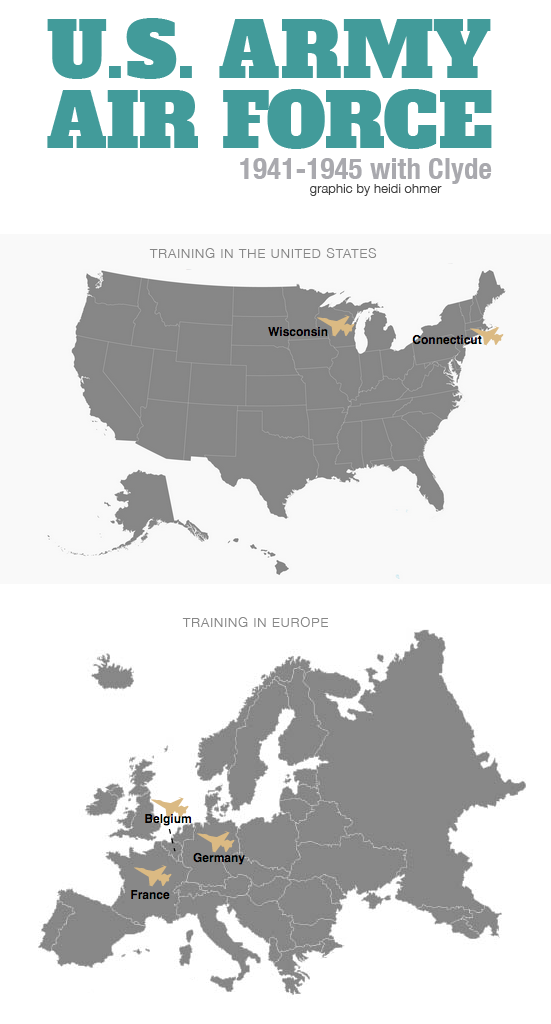by Tanika Burlingame, Public Relations Director/Features Editor
Electricity was in Clyde Naquin’s blood. His dad was an electrician. His dad’s dad was an electrician. It was a family legacy.
So when he joined the Army Air Force in his early 20s, he was sent to teach cadets at Yale University how to make metal vacuums for recording devices — only armed with a high school diploma and a childhood surrounded by his father and grandfather’s work.
Naquin was born in Thibodaux in 1918 and attended Thibodaux Elementary and Thibodaux High School. After high school he met and married the love of his life, Odette Cannicinne. The couple were married for 67 years and had five children, three boys and two girls.
And when war broke out, Clyde signed up. At first he had no idea he would be teaching . . . It was not until he arrived at the Yale that his commanding officer explained that he would be teaching 10 flying cadets for 10 days on how to make metal vacuum tubes for recorders like the German army had been doing. The tubes the Americans were using at the time were glass and more susceptible to breaking. Naquin had more than enough experience as an electrician to be able to quickly teach the cadets the new process of how to manufacture the metal tubes and was given the data the Germans had been using by his officer.
Naquin said classes started very early in the mornings and they would continue until dinner time. He would spend most of the morning going over the wiring system of the electrical process. Naquin admits he felt a bit insecure in his ability to perform calculus, which was needed for several of the formulas that he was teaching.
“Within a matter of days, I knew I was teaching a group of smart individuals and I asked my students to help me better understand calculus. It was essential for what we were doing.”The young men agreed to help as long as he would promise to spend more time after hours teaching them how to make metal tubes. He said “they wanted to learn as much as they could as quickly as possible.” The cadets received a badge after each training course they completed and Naquin said he knew the cadets wanted the extra hours of help so they could receive their badges more quickly and complete their training faster. Naquin and his students quickly got to work and after lights out they would teach each other while holding flashlights under their sheets. He continued to teach the cadets the formula for making metal vacuum tubes and they continued to help him with calculus. This continued for several days until one night they were caught by his colonel. The next morning the colonel took Naquin in the office and told him to pack his bags.
“I was certain once my colonel told me to pack my bags that I was being kicked out of the Army Air Force and sent home.”After packing, he returned to his colonel’s office, where he was informed that he was going to be attending officer training and in 90 short days he would be promoted to a 2nd lieutenant. And while being promoted to 2nd lieutenant was a great memory, one of his favorite memories was walking to the mess hall on Yale’s campus soon after he arrived and hearing a radio loudly playing Glenn Miller’s “Little Brown Jug.” It wasn’t until he got closer that he realized what he was hearing was a live concert.
“To see a live concert by Glenn Miller, surprised me almost as much as being promoted to an officer after I had been caught breaking the rules.”
Listen to some of Glenn Miller’s most popular songs:
Naquin in uniform when he first entered the Army Air Force.
Naquin in his Army Air Force uniform on his first mission in Wisconsin.
Naquin in his 40s when he was established in his career as an electrician.
Naquin dressed for a Mardi Gras ball in Thibodaux.
Naquin shortly before he retired as an electrician.
Naquin recalling the first time he met his wife Odette during a student interview.
Photo by: Britney Fournier
Photo by: Britney Fournier
Naquin at the age of 96 during our first interview at Saint Joseph Manor.
Photo by: Britney Fournier
Photo by: Britney Fournier
Tanika Burlingame, features editor, interviewing Clyde.
Photo by: Britney Fournier
Photo by: Britney Fournier
Previous
Next

